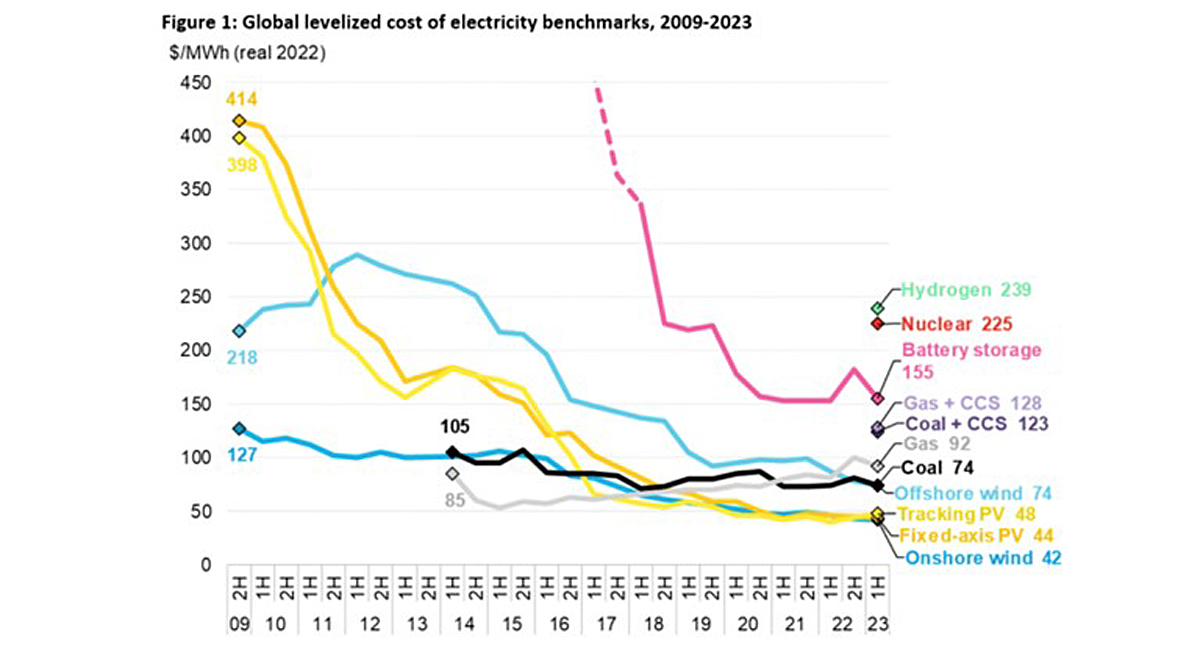by Kathleen Biggins
It feels like a reckoning could be coming.
Climate change is being linked directly to burning fossil fuels in a much more public and linear way – in street protests around the world, in the courts, and in the rhetoric of policy leaders. They are stating it explicitly: climate change is primarily a fossil fuel problem. They are no longer attributing it to the amorphous and faceless “carbon emissions.”
It’s more than semantics. The gloves are coming off in a way we haven’t seen before and at a time when fossil fuels are more vulnerable than ever.
Case in point: California’s new lawsuit against major oil companies and the American Petroleum Institute, accusing them of causing tens of billions of dollars in climate damage and deceiving the public by purposefully downplaying the known risks of burning fossil fuels – and asking the oil companies to pay for future damages.
This comes after two recent court cases, one at the state level, one at the federal level, in which courts found climate change is indeed happening, is due primarily to burning fossil fuels, and poses dangerous negative impacts. With over 2,300 additional climate change-related lawsuits percolating through legal systems around the world – 70% of them in the U.S. – we see a potential sea change coming. In fact, in other countries (such as the Netherlands, France, Germany, and Brazil) fossil fuel companies and governments have already been held legally responsible for climate change impacts, with some courts ordering emission level reduction far above what federal governments have implemented.
Second case in point: More policy makers in high places are explicitly saying we need to stop developing new sources of fossil fuels. The UN Secretary General is increasing his calls to “leave fossil fuels in the ground,” phasing out their development and encouraging companies to spend their record profits to pivot toward producing renewable energy resources. Even Sultan Ahmed al-Jaber, the head of the UAE’s state-controlled oil giant and the controversial leader of the upcoming climate talks in Dubai, is exhorting fossil fuel companies to play a greater role in the transition, calling for a “phase down” of fossil fuels (a softer term than a “phase out,” which many activists demand, but an utterance that would have been considered a sacrilege a few years ago).
And despite record profits, fossil fuel companies are more vulnerable than many realize. After the invasion of Ukraine caused chaos in the energy market, fossil fuels are no longer seen as more reliable or less expensive than clean energy. Home-grown clean energy is less volatile and more secure from global market swings and geopolitical tensions – and this year, on-shore wind and utility solar is providing non-subsidized electricity at rates 40% cheaper than fossil fuels on a global basis.

Source: Bloomberg New Energy Finance
There is more proof in the numbers: clean energy is projected to receive $1.7 trillion in global investment this year, and fossil fuels only $1 trillion. Last year 86% of America’s newly installed power capacity and 80% of the world’s new generation was from non-fossil fuels. The trendline is clear. The International Energy Agency issued a controversial prediction that we could hit “peak oil” by the end of this decade in large part due to the astounding rise in electric vehicle sales and new efficiency measures.
Still, not everyone is hearing the clarion call. Attorneys general from conservative states are reflexively pushing back on almost all things related to climate action, Presidential hopefuls are claiming they will roll back all climate action, and fossil fuel companies are doubling down on exploration and warning that transition will disrupt governments and cause mayhem.
But they may need a new playbook because the game has changed.
In the past, fossil fuels had a monopoly – and in many ways got to write the rules. As a society, we accepted pollution and health impacts that came from using fossil fuels as a necessary cost to be managed and stoically borne in order to have a modern economy and society. What we didn’t realize, however, is that the real impacts of using fossil fuels were much bigger, and that these “externalities” – impacts from using oil, gas, and coal that are not captured in their cost of production and usage – could cause economic havoc on a much grander scale.
How big is the scale? A recent International Monetary Fund (IMF) report calculated that governments last year spent $1 trillion in explicit subsidies (making consumer prices lower than actual supply costs) to fossil fuels, and an eye-popping $6 trillion in “implicit subsidies” – primarily the costs of damages from global warming and air pollution linked to burning fossil fuels. This means much of the real costs for using fossil fuels is shunted to taxpayers (where it is less visible) and away from consumers (who are therefore unaware of the full costs and have less reason to moderate their usage).

And while fossil fuel boosters cannot envision a world without fossil fuels supplying most of our energy, a growing number of policy makers, entrepreneurs, and investment experts can. Consumers and companies don’t want fossil fuels per se: they want secure and inexpensive energy. Fossil fuels no longer have a monopoly: we have new systems that can deliver cheaper energy in a superior fashion – without poisoning our land and water and without damaging our health at the levels that fossil fuels currently do. And these clean technologies – established ones like wind, solar, and batteries, as well as new ones like new nuclear, green hydrogen, and thermal batteries – are stimulating economic development and creating good-paying jobs all across the country.
The fossil fuel companies are right about this: if we transition too quickly, it will disrupt governments and cause havoc. They still provide about 80% of the world’s existing energy needs and, with consumption growing around the world, we will need them in the mix for quite a while. We also need their expertise and deep pockets to help refine and create new technologies.
But as the costs and pain of climate change come into focus with the unrelenting news of extreme heat and disasters, and the rising challenges and costs to insurance, infrastructure, supply chains, and food resources, people are beginning to connect the dots. Building our economy on fossil fuels was much more of a “Faustian” bargain than we realized. And court cases highlighting that fossil fuel companies knew about how extreme and dangerous these consequences would be, and worked diligently for decades to hide them from us, could be very damning in the court of public opinion.
The drumbeat to hold fossil fuel companies to account is getting louder. The reasons to protect them are growing weaker. The realities of climate change are all around us. And the climate naysayers, minimizers, and obfuscators are looking more and more vulnerable and out of step.


